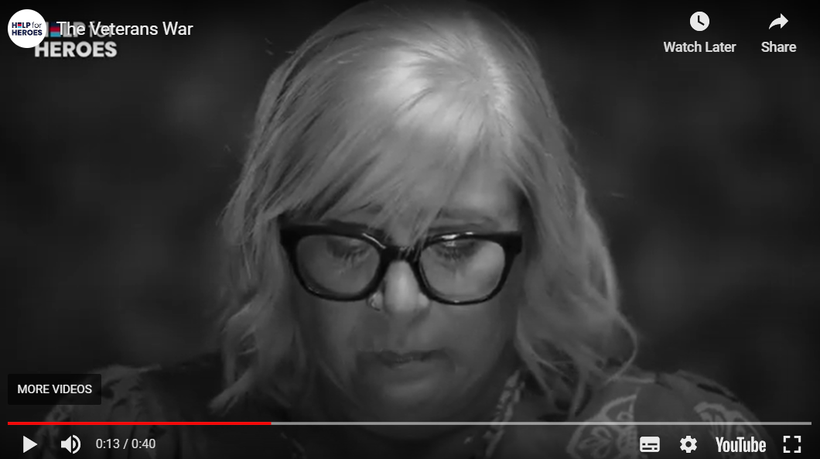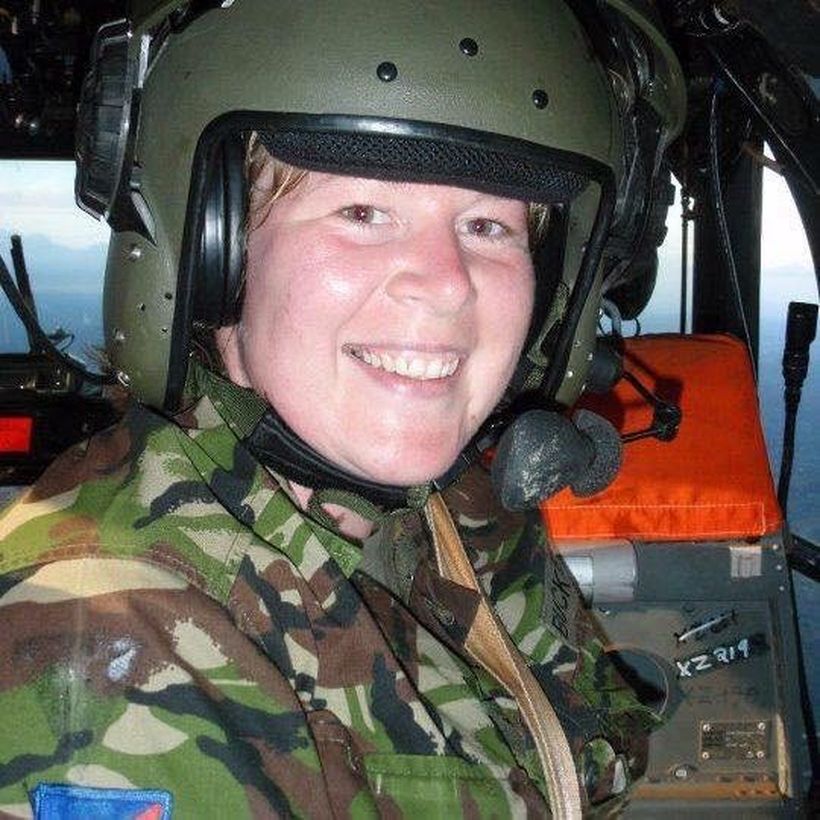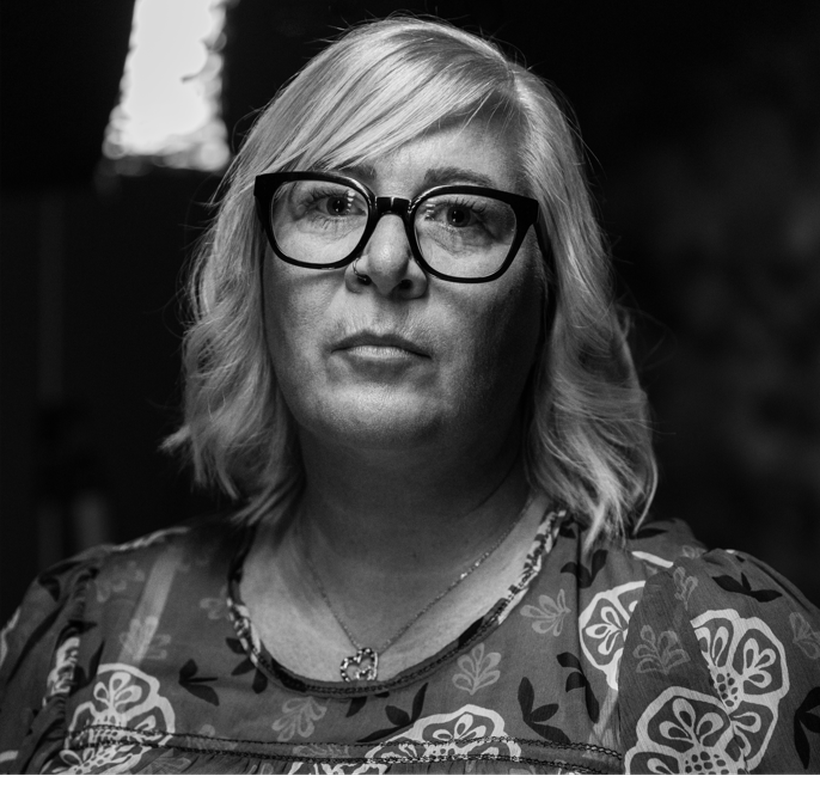Updated on
“I didn’t recognise myself anymore. But piece by piece, I started to rebuild.”
For nearly two decades, Caroline served in the British Army, deploying to some of the world’s most challenging environments – Bosnia, Iraq, Afghanistan, Kenya. Her military life was filled with purpose, pride, and unforgettable experiences.
But when her service came to an abrupt end, Caroline faced invisible wounds, physical injury, and a deep sense of loss.
What followed was a long and painful struggle. Yet from the darkest moments, she began a journey of recovery – one rooted in sport, community, and rediscovering her worth beyond the battlefield.
This is Caroline’s story – of courage not just in service, but in healing.
The Army was the only thing for me
“The Army was the only thing I really wanted to do,” she says. “I met my husband through it. I’ve spent my birthday in amazing places. Flown in helicopters clearing ranges. Lived on the equator. Met people all over the world. Lots of great memories and stories.”
But behind those adventures were accumulating scars – the kind you can’t always see.
The weight became unbearable
Long before her medical discharge, Caroline’s mental health was deteriorating. She’d already seen and experienced too much.
“There were just too many bad memories of previous tours. I didn’t tell anyone. I kept it hidden.”
While on deployment in Iraq, the weight became unbearable. She attempted to take her own life.
Back in the UK, she faced bullying from colleagues who didn’t understand why she’d come home early. Six months later, she ruptured her Achilles tendon. The injury wasn’t taken seriously, and a delayed operation led to permanent nerve damage and drop foot – a life-changing disability.
But that wasn’t the only trigger.
Tipping point
“It’s never one thing that pushes someone to suicide. It’s layers. Small things building up until one more just tips you over.”
She was sent to Afghanistan, then posted to Cyprus – away from her husband, isolated, and barely coping.
Over one weekend, she made other attempts to end her life.
“Every time I woke up, I was gutted it hadn’t worked. On Monday, my alarm went off for physical training (PT). I was more scared of being charged for missing parade than what I’d done to my body. I made it to the parade ground and then collapsed.”
She was airlifted to a UK mental health facility.
“Facing my husband… that was the hardest thing.”
Chaotic and negligent
Caroline was later medically discharged while stationed in Germany. The process, she says, was chaotic and negligent. Her care didn’t transfer. Her discharge paperwork was delayed over Christmas. No guidance. No plan.
“I fell through every gap. No one told me what to do. I gave up – on myself, on the system. I felt like a failure.”
She buried herself in work, commuting long hours to a job she hated just to survive.
“You lose everything. Your role. Your identity. Your future. You don’t even know where to begin again. It’s like trying to squeeze a square peg into a round hole. You keep shaving bits off yourself to fit – but you just don’t.”
Getting to the start line
It took nearly ten years for Caroline to begin recovering from the emotional and psychological fallout of her discharge.
“I couldn’t even look myself in the eyes in the mirror. I could brush my hair, but I wouldn’t meet my own gaze. I just felt worthless. Like I’d let everyone down.”
Her lowest moments were private. Her recovery, gradual. And it started in the most unexpected way: a casual invitation to a Help for Heroes Christmas party in 2014.
“It was so hard just to get through the door. My safe place was my bedroom. Just leaving that to go somewhere unfamiliar felt like a war in my head.”
But something shifted that night.
“A girl next to me asked if I could swim. I said yes. Then she asked if I could ride a bike. Again, yes. She said, ‘Running? We can sort that.’ Then she said, ‘Do you want to do a triathlon?’ And I just… said yes.”
Caroline went home thinking nothing more of it. But a few weeks later, she got an email: Team True Spirit was preparing to take on the Arch to Arc ultra-triathlon, from London to Paris.
“I told my husband he had to come with me – I wouldn’t make it alone.”
More than just the sport
They joined the challenge together, as part of a team they ran, cycled and swam the channel.
“It wasn’t just about sport. It gave him people to talk to too. He realised he wasn’t the only one dealing with what I was going through.”
Caroline’s mental health was still fragile, but the event marked a turning point.
“I wasn’t better, not by a long way. But it gave me a reason to keep going. I started to take ownership of my recovery.”
In the years that followed, she engaged more with Help for Heroes.
“I’ve now been with them for ten years. Every year, there’s been a shift – a bit of growth, a bit more healing. It’s not fast. It takes time.”
Adapting and growing
She retrained through night school to become a gym instructor and personal trainer. She tried sports she’d never done before, adapted for her new reality.
“I kept clinging to the old me – the athlete I was before my injury. At some point, I had to accept that version had gone. So I tried something new.”
She earned qualifications in indoor rowing and powerlifting, joining the Help for Heroes Coaching Academy. In 2023, she became a powerlifting coach.
Now, she coaches other veterans.
“One guy told me, ‘I never thought I’d get to do anything like this because I’m blind.’ I said, ‘We’ll adapt it.’ I placed a box behind him so he could feel when he reached the right squat depth. The smile on his face was everything.”
Helping others heal through sport has become part of her own journey.
“I still struggle sometimes. But now, I get to be the person I needed back then.”
I’ve found peace
At Sport Series weekends, she looks out for those who are where she once was.
“I remember being that person – the one who couldn’t get through the door. So when I see someone nervous, I say, ‘Let’s just watch. If you fancy it, we’ll adapt it.’ And more often than not, by the end of the weekend, they’re having a go.
“I’ve found peace. Not straight away – it took a long time. But now I accept myself. I can look at my reflection and see my soul. It’s happy. I’ve found my fit. I’m a round peg in a round hole now – and it’s mine.”
Caroline now works as a civil servant – a long-time goal – and continues to coach regularly.
Her message to other veterans still fighting for peace?
“You’ve already got determination built into you. You just need to channel it into something that lights you up. Maybe it’s rowing. Maybe boxing. Maybe lifting weights. Whatever makes you feel strong again.
“When you do – you’ll feel it. That moment of pride. That freedom. That growth. You can’t buy it. But it’s everything.”





